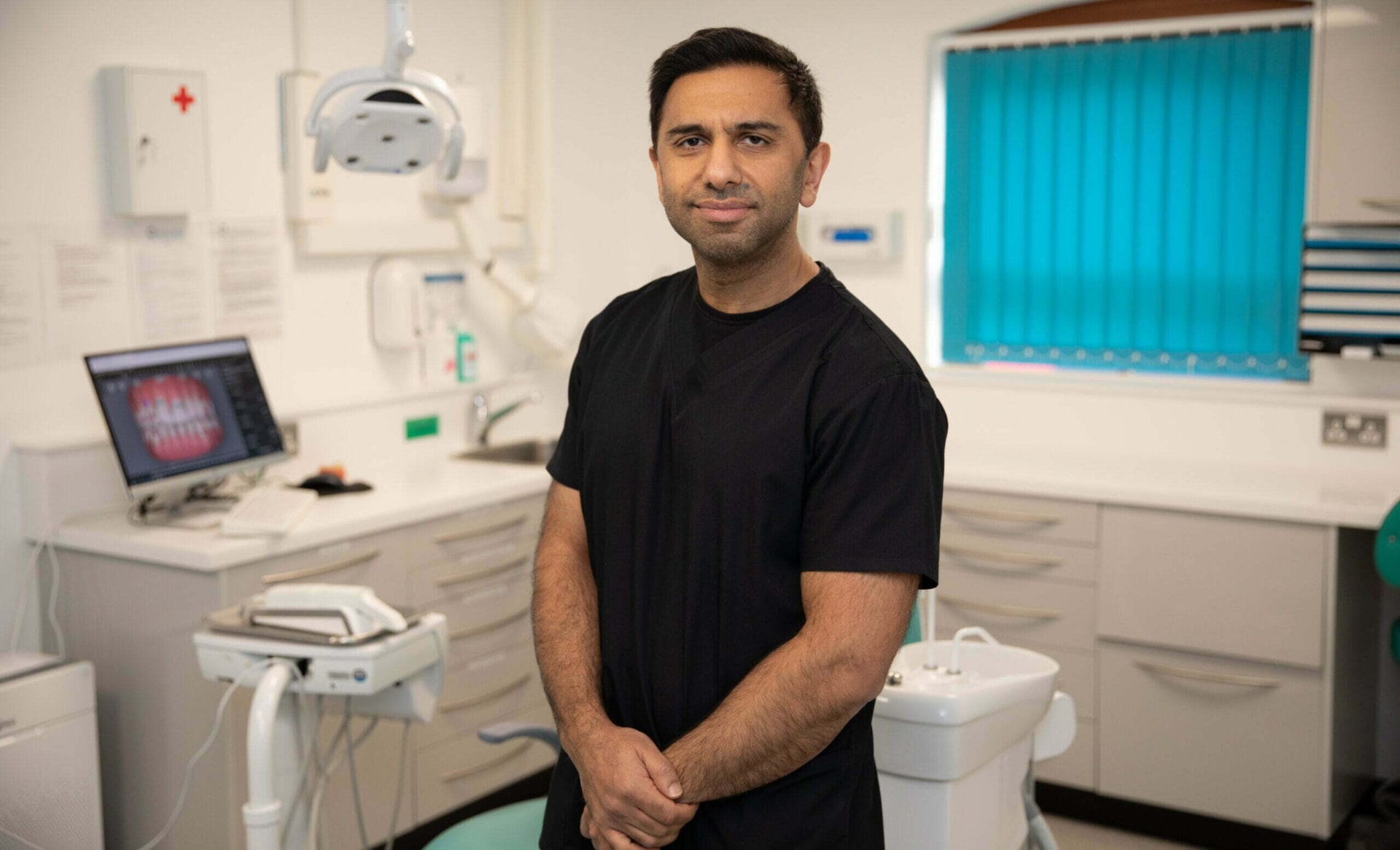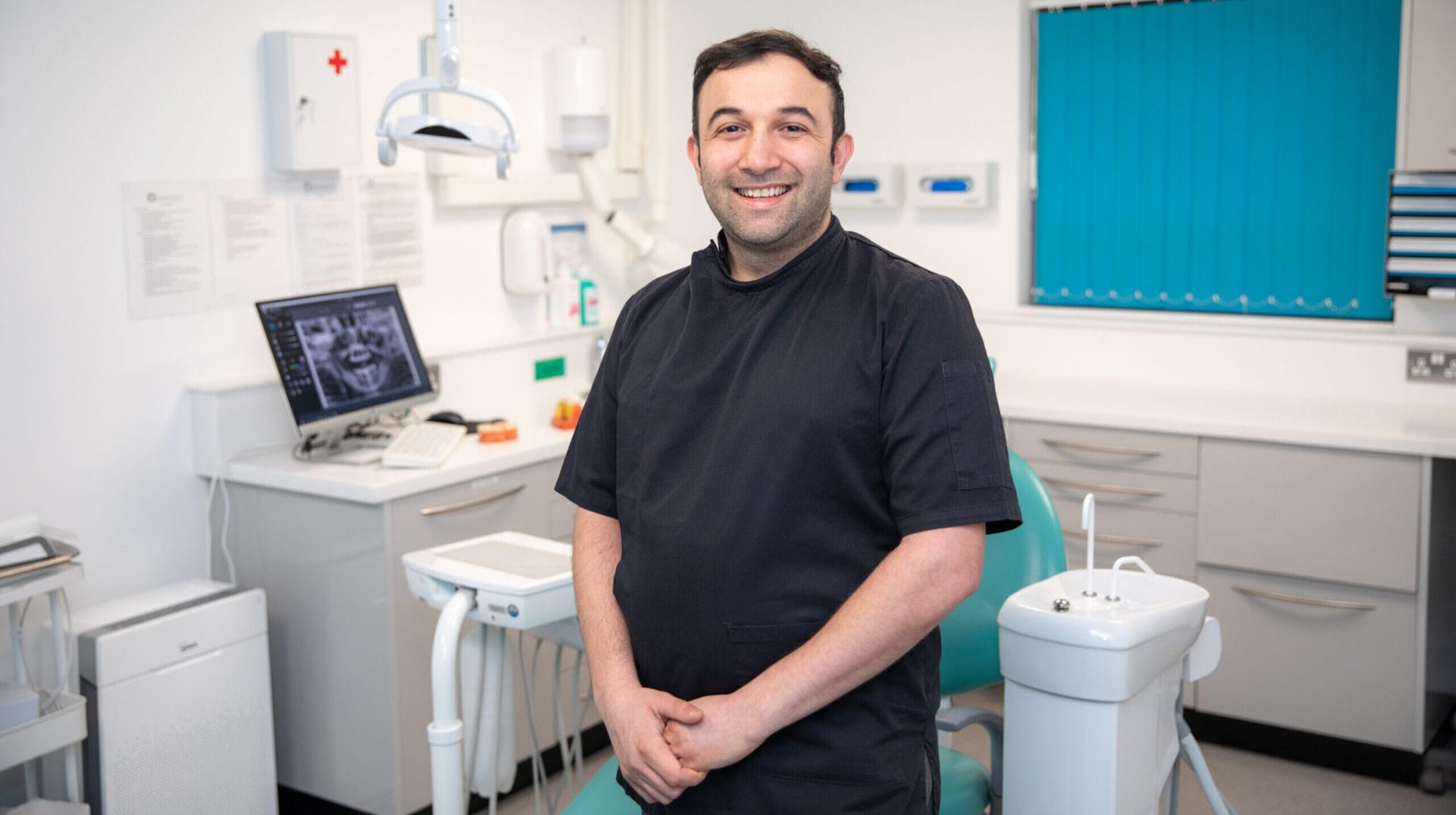Tooth wear & bruxism
Are you struggling with tooth sensitivity or tooth wear? You could have bruxism, also called teeth grinding. In some cases, masseter botox is the best treatment by reducing the muscle tension that contributes to grinding. Book a consultation with our dentists in Leeds today – we’ll get to the root of your bruxism and find a botox treatment plan that works for you.
- Relief
- Prevention
- Comfort

Bruxism treatment - quick overview
- Masseter Botox for Relief
- Custom Night Guards
- Pain & Tension Reduction
- Minimally Invasive & Quick
- Long-Lasting Protection
What causes bruxism?
Bruxism is usually caused by stress, anxiety, or sleep disorders. It leads to unconscious teeth grinding, especially at night. It can also result from an abnormal bite or misaligned teeth that put extra stress on certain teeth.

Why choose a bruxism treatment?
- Helps relieve jaw pain, headaches, and facial tension caused by bruxism
- Regular treatment helps maintain results and prevent future damage
- Reduces muscle activity to ease grinding and prevent further tooth wear
- Botox treatment is fast, non-surgical, and requires no downtime
Preventing and treating bruxism
Dental treatments might include using custom-fitted mouthguards at night or corrective dental procedures to align your teeth properly. If you’re struggling with intense clenching, our muscle-relaxing injections in Leeds may provide relief by easing tension in the jaw. It’s also important to address any potential underlying issues, like stress or sleep disorders, to prevent your bruxism from returning.
Our Leeds dentists will take the time to fully understand the cause of your teeth grinding, assessing your overall oral health to provide a custom treatment plan. Reach out today to book a consultation with our team and protect your teeth for the long term.

Masseter botox for bruxism
Masseter Botox, a muscle relaxing injection treatment is a popular way to help with your bruxism. When you come to our Leeds office, our expert dentists will inject Botox into your jaw to reduce the movement of your facial muscles, lowering the amount of clenching and grinding you do, even when you sleep.
You may need a top-up every four months to make sure the masseter botox continues to work, but your dentist will set up a tailored treatment plan that works just for you.
Frequently Asked Questions
Have questions about bruxism or tooth wear in Leeds? Check our most common ones here or give us a call if you can’t find what you need.

Protect your smile
Don’t let bruxism damage your smile – or your confidence. Whether you need a nightguard, corrective dental work, or masseter treatment in Leeds, we’ve got the expertise to create a treatment plan that works.
Book your consultation with our team today and take control of your dental health with expert care and effective solutions.
Trusted by patients in Leeds


What are the signs of tooth wear from bruxism
Early signs of tooth wear from bruxism include worn teeth, increased tooth sensitivity, and changes in how your teeth fit together. Over time, you might notice your front teeth thinning at the bottom.If you’re concerned about wear and clenching, consider booking a consultation for Masseter Botox in Leeds with Aesthetique to prevent further damage.
How can I tell if I am grinding my teeth at night?
Common symptoms of grinding your teeth at night include waking up with a sore jaw, a headache, or noticing that your teeth are increasingly sensitive. Muscle-relaxing injections in Leeds can help ease jaw tension, protecting your teeth and helping you wake up pain-free.



















